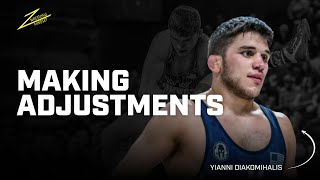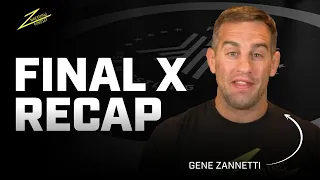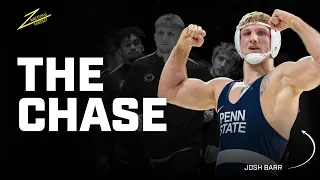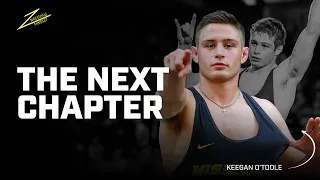Learn
9 Ways to Prevent Burnout in Wrestlers
Wrestling is a physically and mentally demanding sport that requires immense dedication and perseverance. However, the intense training, competitions, and pressure can lead to burnout. Burnout, in the context of wrestling, refers to a state of physical, mental, and emotional exhaustion. It often manifests as a decline in performance, chronic fatigue, loss of motivation, and increased irritability. Wrestlers are particularly susceptible to burnout due to the demanding nature of the sport, including intense training sessions, weight management, and frequent competitions. To ensure long-term success in wrestling, it is crucial for athletes and coaches to prioritize prevention and management of burnout. In this blog, we will explore effective strategies and practical tips to help wrestlers maintain balance, stay motivated, and prevent burnout throughout their careers.
- Establish your Goals and Purpose: Set short-term and long-term goals. Some wrestlers are motivated by their long-term goals while others may be overwhelmed by them. Thus, it is important to write down your short-term goals in addition to long term goals. Understanding your purpose or your “why” is also crucial to avoid burnout. Why do you want to achieve these goals? Are you just trying to impress other people or do you believe that the pursuit will make you a better person? Having a strong “why” for your goals is crucial in battling the ups and downs of a wrestling season or career.
- Maintain a Balanced Training Schedule: As a youth wrestler this means playing other sports and getting involved in other activities. A youth wrestler’s training regimen should not look the same as a serious high school or collegiate wrestler’s training or competition plan. For a serious high school wrestler this means varying your workouts on and off the mat. This could be changing intensities, sparring instead of drilling, doing outdoor workouts, changing your cardio/strength program, etc. Incorporating new workout routines is another great way to main a balanced training schedule. Also, it is important never to neglect other important areas like faith, family and school.
- Cultivate Mental Resilience: One of the bright spots in wrestling and in sports lately is the acceptance and prevalence of mental training. Top wrestlers and athletes are not only training their mindset but openly talking about it and promoting mindset training/mental health in their interviews and conversations. Having a mindset coach, sport psychologist or counselor is a great way to not only build mental resilience but perform optimally on and off the mat. Mental training like Wrestling Mindset, will provide tools and strategies to improve confidence, motivation, mental toughness and reduce performance anxiety and pressure. Contact Wrestling Mindset to learn more about our 1-1 and Team Training.
- Find Ways to Make Wrestling More Fun: The number one reason kids quit wrestling or sports is because it is no longer fun. It is imperative to ensure that the sport is fun at all levels. For youth wrestlers, incorporating learning through games is essential. Even as wrestlers get into high school and college, careful attention should be given to making sure that kids are enjoying the sport. One of the lessons we do with our Wrestling Mindset wrestlers is having them right down what they enjoy about different aspects of the sport (matches, tournaments, practices, other training). Most wrestlers facing burnout likely enjoy certain aspects of wrestling but have lost focus on them. A good coach or mindset coach can help remind and reinforce wrestlers of their love for the sport.
- Manage Weight Wisely: For youth wrestlers this is as simple as not cutting any weight. Long term weight cutting takes a toll on your mind and body. It can lead to more injuries and higher likelihood of burnout. In fact, a first solution for a wrestler experiencing burnout is to stop cutting weight or move up a weight class. It may be surprising how many wrestlers are burnt out for this reason alone, even at the college level. That said, weight management is a significant aspect of wrestling. There needs to be a mindset shift, from weight cutting to weight management. Learning about and focusing on proper nutrition, hydration and exercise could help weight maintenance during and even after a wrestling career. Seek guidance from a nutritionist or sports dietitian to develop a healthy and sustainable plan.
- Prioritize Sleep: Adequate sleep is essential for recovery, energy restoration, and overall well-being. Often times overtraining or burnout is a function of not eating, sleeping, thinking or recovering properly. Aim for 7-9 hours of quality sleep each night. Establish a consistent sleep schedule and create a peaceful sleep environment to optimize restfulness. One of the key themes and differentiators we see with our most successful wrestlers is a consistent and sufficient sleep schedule.
- Communicate with Coaches and Parents: Maintain open lines of communication with your coaches. A coaching and parent mindset guide is an important exercise in our Wrestling Mindset training to improve the coach-wrestler and parent-wrestler relationships. Many cases of burnout are a result of poor communication with coaches and parents. Make sure to express any concerns, difficulties, or burnout before they build up too quickly.
- Foster a Supportive Environment: Surround yourself with a positive support network, including coaches, teammates, friends, and family who understand and appreciate the demands of wrestling. Distance yourself from people who aren’t on a similar mission. Cut out negativity in all forms, including people you follow on social media, music you listen to and video you watch.
- Take Breaks and Plan your Recovery: Remember, wrestling is a marathon not a sprint! Intentionally schedule periodic breaks from wrestling to recharge physically and mentally. A well-placed vacation or time away from the sport can reignite your passion and prevent burnout. Many wrestlers have cited time away from the sport as a catalyst to jump levels and enjoy the sport again.
Working with a Mindset Coach is a proven way to improve performance and reduce burnout in wrestlers. Wrestling Mindset has helped tens of thousands of wrestlers and athletes overcome this and other mental struggles. Learn more about our 1-1 Mindset Coaching Here
‹ Back








